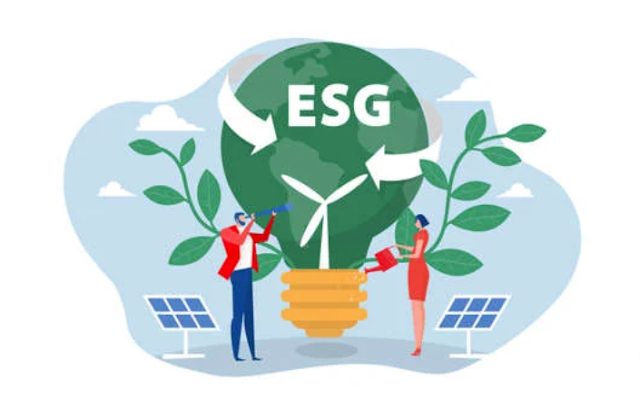Sustainable and ESG Mutual Funds: Investing with a Purpose
In recent
years, investors have increasingly sought opportunities to align their
investments with their values and make a positive impact on the world.
Sustainable and Environmental, Social, and Governance (ESG) mutual funds have
emerged as popular choices for those who want to invest with a purpose. In this
comprehensive article, we will explore the concept of sustainable and ESG
investing, their benefits, and the considerations for investors looking to make
a difference through their investment choices.
1. Understanding Sustainable and ESG Investing:
Sustainable
and ESG investing involves incorporating environmental, social, and governance
factors into the investment decision-making process. These funds aim to invest
in companies that demonstrate strong environmental and social practices while
exhibiting robust corporate governance standards. By considering both financial
and non-financial criteria, sustainable and ESG mutual funds seek to create a
positive impact on society and the planet.
2. The Rise of ESG Investing:
ESG
investing has gained significant traction in recent years, driven by increasing
awareness of environmental challenges, social inequality, and the importance of
responsible corporate behavior. Investors are recognizing that sustainable practices
can lead to long-term value creation and risk mitigation. As a result,
sustainable and ESG mutual funds have witnessed substantial growth, offering a
range of investment options across various asset classes.
3. Benefits of Sustainable and ESG Mutual Funds:
a.
Positive Impact:
Investing in sustainable and ESG mutual funds allows investors to support
companies that are actively contributing to positive social and environmental
change. By directing capital towards businesses with responsible practices, investors
can promote sustainable initiatives and address pressing global issues, such as
climate change, diversity, and corporate ethics.
b.
Long-Term Value Creation:
Companies that adopt sustainable practices are often better positioned to
manage environmental risks and capitalize on emerging opportunities. As a
result, sustainable and ESG mutual funds may provide long-term value creation
potential, benefiting both investors and society at large.
c. Risk
Mitigation:
Incorporating ESG factors into investment analysis can help identify potential
risks and liabilities associated with unsustainable business practices.
Companies with strong ESG profiles may be better equipped to navigate
environmental and social challenges, reducing the likelihood of reputational
damage and regulatory issues.
d.
Alignment with Values:
Investing in sustainable and ESG mutual funds allows investors to align their
investment decisions with their personal values and beliefs. Whether they are
passionate about environmental conservation, social equality, or corporate
accountability, investors can choose funds that reflect their specific
priorities.
e. Access
to Innovative Companies:
Many sustainable and ESG mutual funds invest in companies that are at the
forefront of innovation in various sectors, such as renewable energy, clean
technology, and social impact initiatives. Investors can gain exposure to these
cutting-edge companies and industries through these funds.
4. ESG Criteria and Scoring:
Different
sustainable and ESG mutual funds use varying criteria and scoring methodologies
to evaluate companies. Environmental criteria may include factors such as
greenhouse gas emissions, water usage, and waste management. Social criteria
may assess labor practices, human rights, and community engagement. Governance
criteria focus on board composition, executive compensation, and transparency.
5. The Role of Active Engagement:
Many
sustainable and ESG mutual funds engage with companies in their portfolios to
encourage positive changes and foster better ESG practices. Through active
dialogue with company management and proxy voting, these funds seek to
influence corporate behavior and drive meaningful improvements.
6. Performance Considerations:
Sustainable
and ESG mutual funds have demonstrated competitive performance compared to
traditional funds. While their performance can vary over short-term periods,
research indicates that sustainable and ESG-focused companies have the
potential for competitive returns over the long term.
7. Investor Education and Awareness:
Investors
considering sustainable and ESG mutual funds should educate themselves about
the specific criteria and approaches used by different funds. Understanding the
fund's investment strategy, the ESG factors considered, and the impact
objectives can help investors align their choices with their values.
8. Diversification and Risk Management:
As with any
investment, diversification remains essential for managing risk. Investors
should aim to build a diversified portfolio that includes a mix of sustainable
and ESG mutual funds alongside other asset classes. This approach can help
balance risk and optimize returns while staying true to one's values.
9. Professional Guidance:
Investing in
sustainable and ESG mutual funds can be complex, especially for those new to
the concept. Seeking advice from a qualified financial advisor can help
investors navigate the available options and select funds that align with their
financial goals and ethical considerations.
Conclusion:
Sustainable and ESG mutual funds offer investors an opportunity to make a positive impact on society and the environment while seeking financial returns. These funds provide an avenue for individuals to support companies that prioritize sustainability and responsible practices. As the awareness of environmental and social issues continues to grow, sustainable and ESG investing is likely to play an increasingly significant role in shaping the future of the investment landscape. Investors can harness the potential of sustainable and ESG mutual funds to achieve both financial goals and contribute to a more sustainable and equitable world.










